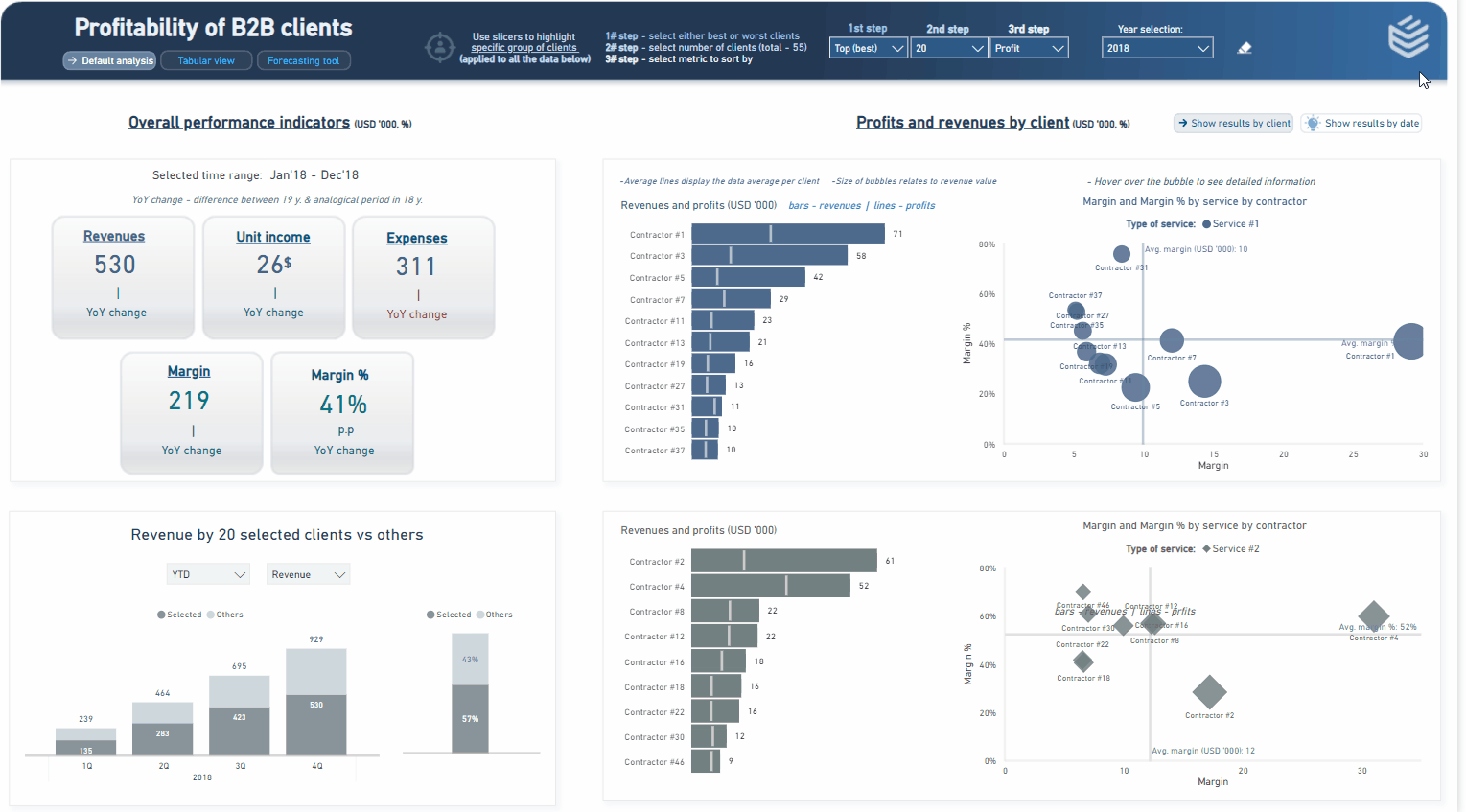Business analytics and controlling in startups - how to use data to develop your company?
3 min read
Whether a startup succeeds or fails often comes down to small details—and there are probably as many opinions on the path to success as there are startup founders. There’s no single recipe for success, but whatever direction your startup takes, the efficiency of your actions and risk reduction will be key. That’s where building a data-driven culture, implementing analytical tools, and introducing controlling procedures come in. Smart data analysis and decision-making allow you to ground your growth strategy on a solid foundation. Data can become actionable knowledge—but the question is how. That’s exactly what we want to show you today, taking into account the specific challenges of fast-growing startups. Let’s assume your startup has already passed its initial stage. Your product, service, or solution has gained market traction—not only surviving, but gradually expanding. You’ve secured funding from investors who, like you, expect continued growth. 9 out of 10 startups fail due to poor financial management. (Failory) Creating a finance and analytics department or hiring controllers or a CFO isn’t always high on a startup’s spending priorities. As a result, analytical tasks are often handled by accountants, administrative staff, or even founders themselves. Reporting and analytics aren’t properly managed, leading to common challenges—unexplained margin fluctuations, unexplained churn, investor demands for reliable reporting, while you’re left with messy operational data and a basic income statement. Today’s remote-first world has embraced outsourcing and collaboration with external partners. This opens the door for many business processes—including controlling and analytics—to be handled remotely, efficiently, and cost-effectively. Between 60% and 73% of business data goes unused for analytics. (Forrester) Despite the benefits of being data-driven, implementing analytics and controlling processes poses challenges. Based on our experience, here are six areas startups typically struggle with the most: Let’s start with the most critical point—building a team. For many startups, hiring a CFO or full-time analysts is a budget breaker and counterproductive. Outsourcing to a specialized firm is more cost-effective and flexible, allowing your analytics needs to scale with your business. 56% of SMEs “rarely or infrequently” analyze data, and 33% blame it on being too busy. (Sigma) We’ll cover KPIs and cost/revenue structures in a separate post, but here we want to focus on choosing the right tools. Ideally, they should enable clear, interactive reporting based on integrated data from multiple sources—and support cleansing, modeling, and transformation. This is exactly where Business Intelligence tools like Microsoft Power BI shine. It’s designed to meet the exact needs we’ve outlined. We explained this further in our article on why you should move from Excel to Power BI. To implement controlling and analytics, you don’t need to hire a full internal team. Startups can flexibly outsource these functions to specialists. As we mentioned earlier, this option is more affordable, efficient, and scalable than building an in-house team—especially for startups on a rapid growth path. If you want to implement controlling and business analytics in your startup and are looking for outsourced support, get in touch with us!
Business Analytics and Controlling in Startups – How to Use Data to Grow Your Company?
Scaling a Business – How to Effectively Control a Startup During Growth?
Your organization is growing—not only in headcount, customer value, or the scale of operations, but also financially and in terms of investor expectations.
You’re entering an exciting yet complex phase. As your business grows, so does the volume of data and the need for insight into revenues, costs, margins, liquidity, operations, marketing efforts, and customer behavior. So, what now? How do you scale while staying efficient?Controlling, Analytics, and Data Hygiene – Why Are They Crucial for Startups?
In the past, access to advanced and interactive data tools was limited. Implementations were costly and time-consuming, while affordable tools lacked flexibility.
And thanks to growing trust in cloud-based tools like Power BI, even small startups can become data-driven without massive upfront investment.Why Should Startups Embrace Business Intelligence from Day One?
Data & Controlling Challenges Faced by Startups

Example report generated in Microsoft Power BIHow to Implement Controlling and Analytics in a Startup?
We are increasing company value, for real



